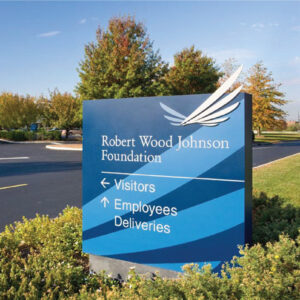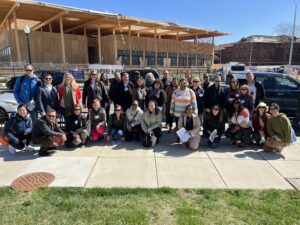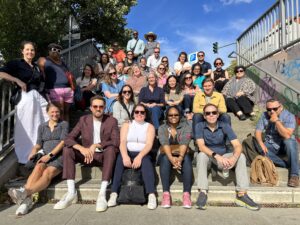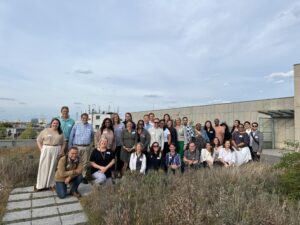
The Robert Wood Johnson Foundation (RWJF), the nation’s largest health foundation, has recommitted to supporting ULI’s efforts to engage members to improve health and social equity outcomes for individuals and communities. The Foundation’s most recent grant of $1.5 million is RWJF’s fifth major investment in ULI’s work to help members and real estate leaders address the country’s growing health disparities and increase equitable access to healthy places.
“ULI and its members are uniquely positioned to incorporate and center health and racial equity in real estate development and land use, especially in the places where the greatest inequities occur,” says Chloe Gurin-Sands, Program Officer at the Robert Wood Johnson Foundation.
RWJF has had a strategic relationship with ULI since 2015. The Foundation’s long-standing focus on the role of the built environment as an essential driver of individual and public health outcomes, and its work on social determinants of health such as economic opportunity, make it a natural partner for ULI.
“RWJF has been an incredible funding and thought partner to ULI through the years, and collaboration with RWJF has been catalytic for the work that ULI has been able to do when it comes to our Building Healthy Places program, UrbanPlan, the Real Estate Diversity Initiative, DEI, and other essential priorities and programs,” says Rachel MacCleery, Co-Executive Director for the ULI Randall Lewis Center for Sustainability in Real Estate.
RWJF’s most recent $1.5 million grant will build on previous funding priorities and programming. The grant will support ULI’s work to foster a growing understanding of intersections between health, equity, and real estate among ULI members; cultivate a more diverse and inclusive ULI membership and real estate industry; and engage members to understand and take action to build healthy, equitable, sustainable, and inclusive communities.
These activities build on strong foundations at ULI including the seminal 2022 report, 10 Principles for Embedding Racial Equity in Real Estate Development; which has worked to align members to address the impacts of historic inequities and racial discrimination in land use; and the impactful ULI Health Leaders Network which is focused on empowering real estate and land use professionals with the skills and knowledge to improve health outcomes in their work and communities.
“ULI’s reach and influence make it an ideal partner for engaging the private sector,” says Gurin-Sands. “We hope our work together encourages ULI members to adopt antiracist and health-promoting practices in development and include residents of the communities experiencing the greatest health inequities in decision making around development in their communities.”



Photos feature ULI Health Leaders Network Cohort 6

